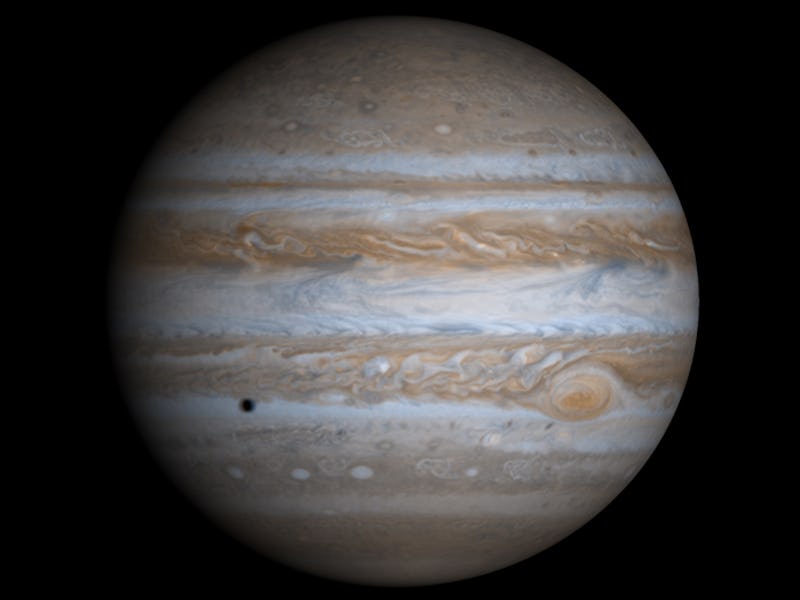European Space Agency to Scour Jupiter's Moons for Alien Life
The ESA will launch a craft to explore Jupiter and its potentially life-supporting moons.

While NASA focuses on Mars and beyond, the European Space Agency is aiming to case Jupiter. The ESA just announced a $384 million contract agreement with French defense company Airbus Defense & Space that will jumpstart the agency’s Jupiter Icy Moons Explorer (or JUICE) mission that will attempt to search our solar system for signs of alien life.
An artist's rendering of JUICE
Airbus will begin designing a new spacecraft by the end of this month, and will be responsible for testing and launching it by 2022. The mission will include teams of scientists from around the world, including 16 European countries, the United States, and Japan.
If successful, the mission will make its way to Jupiter and its moons — Europa, Ganymede, and Callisto — by 2030, and will spend three years exploring the stormy atmosphere and magnetic field surrounding the solar system’s largest planet.
Ganymede
The mission’s biggest treat will be studying Jupiter’s planet-sized moons, all of which are primarily composed of ice and are thought to have massive global oceans of water underneath their frozen surfaces. JUICE (a.k.a. the most delicious-sounding space mission ever) will be the first time a man-made craft will orbit the moons. One goal: to determine whether these oceans could host life.
ESA scientists will pay particular attention to Ganymede, the largest moon in the solar system and the best bet to have some form of life on it, even if it’s merely microorganisms congregating on suboceanic volcanic vents.
Europa, one of Jupiter's moons
JUICE will sport 10 state-of-the-art systems to gather data, including high speed cameras, spectrometers to determine the composition of the surfaces of each celestial body, ice-penetrating radar, altimeters, and cutting-edge sensors that will test particles in the Jovian system.
How great would it be if aquatic aliens have been orbiting Jupiter this whole time? We’ll only have to wait 15 years to find out.